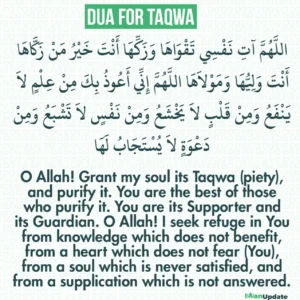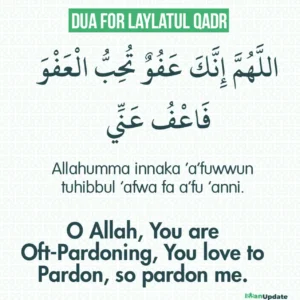Dua Between Sujood In Arabic, English and Hadith

Reciting prayers between the two prostrations (sujood) is a confirmed tradition of the Prophet (peace and blessings be upon him). This practice is supported by multiple authentic hadiths. Here are the duas in Arabic (original text), English (translation) and Transliteration (phonetic pronunciation).
Dua Between Sujood In Arabic
رَبِّ اغْفِرْ لِي، رَبِّ اغْفِرْ لِي
Transliteration: Rabbighfir lee, Rabbighfir lee.
Meaning: My Lord, forgive me. My Lord, forgive me.
Dua Between Two Sujood In Arabic
اللَّهُمَّ اغْفِرْ لِي، وَارْحَمْنِي، وَاهْدِنِي، وَاجْبُرْنِي، وَعَافِنِي، وَارْزُقْنِي، وَارْفَعْنِي
Transliteration: Allaahum-maghfir lee, warhamnee, wahdinee, wajburnee, wa ‘aafinee, warzuqnee, warfa’nee.
Dua Between Sujood Meaning In English
The dua between sujud in English is O Allah forgive me, have mercy on me, guide me, support me, give me health, grant me sustenance and raise my rank.
Dua Between Two Sajdah Hadith
Ibn Abbas reported: The Prophet, peace and blessings be upon him, used to say between the two prostrations, “O Allah, forgive me, have mercy on me, restore me, guide me, and provide for me.”
Source: Sunan al-Tirmidhi 284

The scholars differed concerning the ruling on this supplication. The majority of scholars are of the view that this supplication is recommended (mustahabb), and is not one of the obligatory parts of the prayer.
READ ALSO: 5 Dua in Ruku in Arabic and English
When asking Allah for mercy, we’re seeking His compassion and salvation from evil, sin, and punishment. Mercy brings us closer to achieving our goals.
Asking for guidance means seeking knowledge, understanding, and the ability to make wise decisions.
Requesting protection means asking Allah to guard us from all harm, including:
- Diseases of the heart (doubt, hypocrisy, hatred)
- Physical ailments (sicknesses that affect our body)
Remember, heart diseases are more severe than physical ones. If we’re patient and hopeful, physical ailments can even bring us closer to Allah.
When asking for sustenance, we’re seeking provisions for our:
- Body (food, drink, clothing, shelter)
- Mind (beneficial knowledge, righteous deeds)
This comprehensive approach to worship encompasses all our needs in this life and the hereafter. We ask Allah to:
- Forgive us
- Have mercy on us
- Guide us (for our afterlife)
And we also ask Him to:
- Mend our affairs
- Grant us health
- Provide sustenance
- Raise our rank (for our well-being in this life)
This is how we worship Allah, constantly and fully. It’s not just about attending the mosque on Fridays or church on Sundays and then neglecting our faith the rest of the week. True worship is a complete package, a 24/7 commitment.
This is the beauty of Islam, which attracts millions of people worldwide. They’re drawn to the direct connection between the individual and Allah, without intermediaries. In Islam, we glorify only Allah, recognizing Him as the sole creator of the universe.
We devote all our worship, love, gratitude, and submission to Him alone, acknowledging His uniqueness and oneness.






